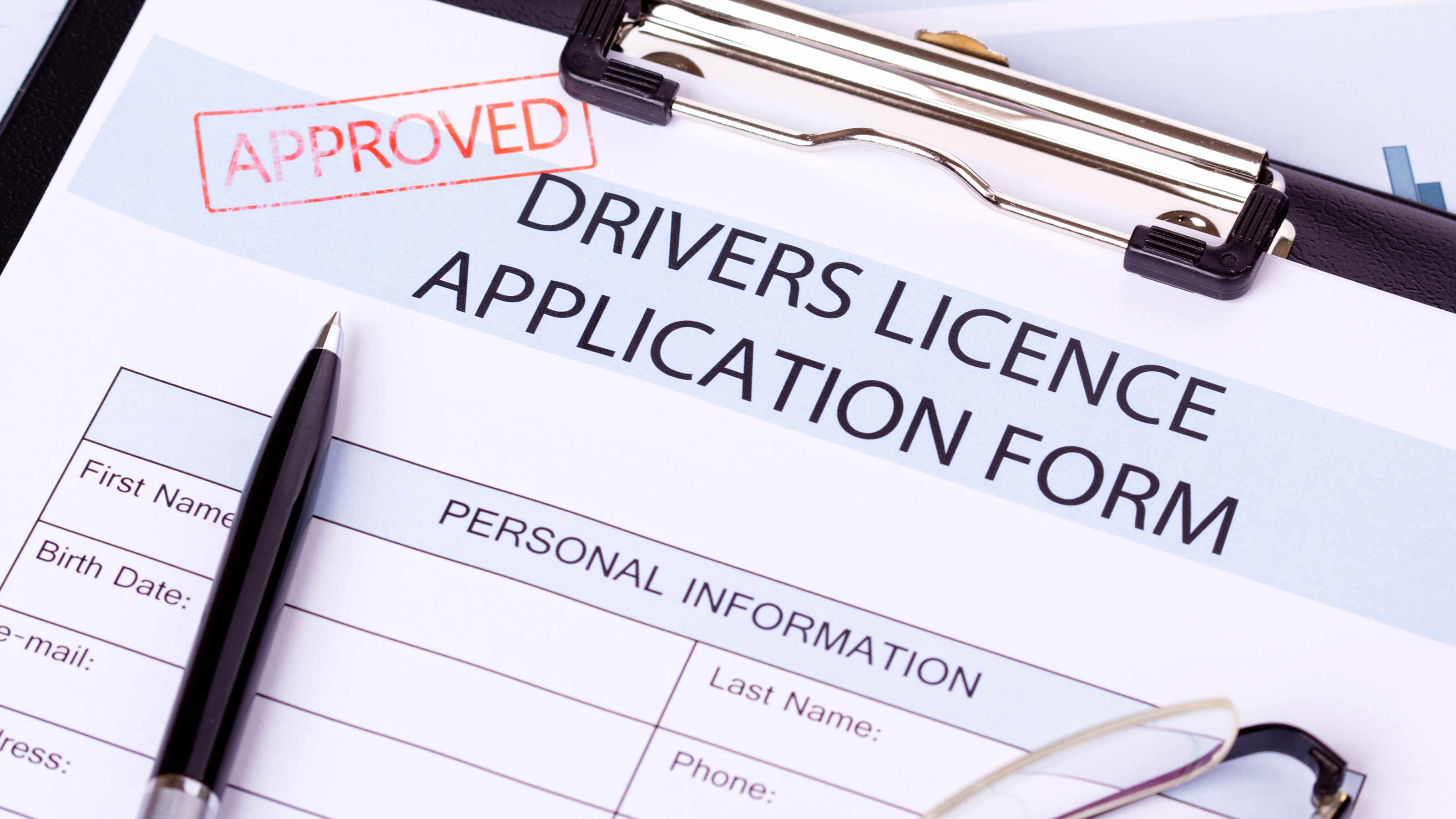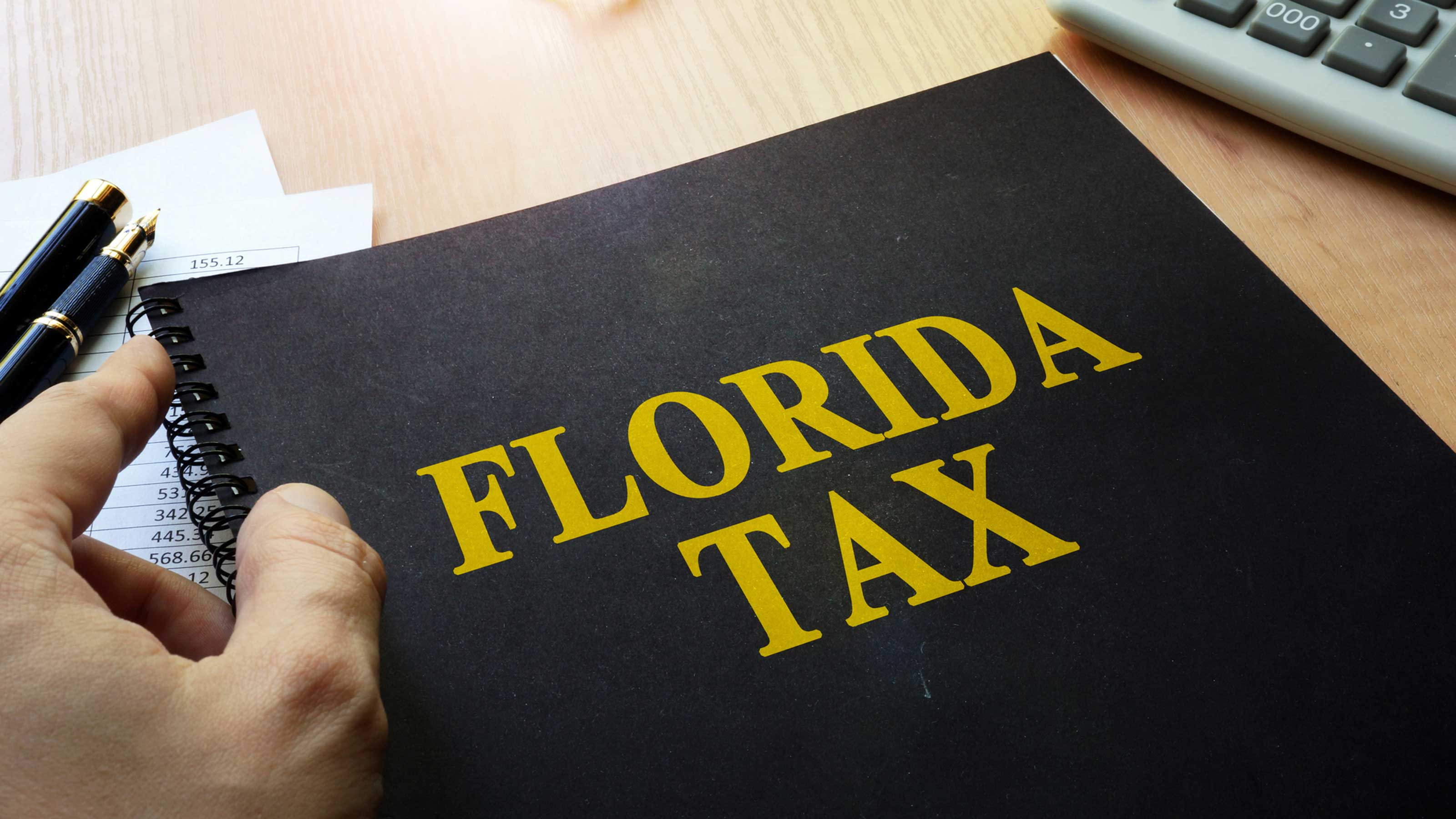16 Ways Snowbirds Can Establish Residency in Florida for Tax Purposes
Looking to avoid state income taxes in retirement? Satisfy Florida residency requirements to prove you’re the real deal.

Kate Schubel

Profit and prosper with the best of Kiplinger's advice on investing, taxes, retirement, personal finance and much more. Delivered daily. Enter your email in the box and click Sign Me Up.
You are now subscribed
Your newsletter sign-up was successful
Want to add more newsletters?
Shorter days, leafless trees, and chilly mornings are all signs for "snowbirds" to head south for the winter.
And if you're one of the thousands of retirees heading to the Sunshine State, you may be wondering how to establish Florida residency for financial purposes. After all, who wouldn’t want to take advantage of no individual income tax and no taxes on retirement income?
But establishing residency in Florida means you’ll need to show the state is your primary and permanent home, and your actions, not your words, count the most.
That means cutting as many ties to your warm-weather abode as possible and putting down roots. This is particularly important as many high-tax states have earned reputations for fighting wealthier snowbirds who suddenly claim to be Florida residents.
Here are a few things you can do to show you’re a true Floridian if your warm-weather state challenges your residency status.

1. Spend more time in Florida
Spending a lot of time in the Sunshine State is one of the most important ways to establish residency.
The majority of states have a 183-day rule, which means the state you’re moving from will tax you as a resident if you own a home and spend at least 183 days during the year (basically, six months) there. Some states require more in-state days to be considered a resident.) The days don't have to be consecutive and part of a day can count as a full day.
Related: Living Abroad for a While? Shakira Tax Fraud Case Offers Tax Residency Lessons.
Obviously, if you spend more than half your time in Florida, you won't reach the 183-day threshold in the state where you spend your summers. If you can't spend that much time soaking up Floridian rays, then take a vacation, visit family or friends, or otherwise spend time in some other location — anything to avoid spending 183 days or more in your high-tax summer state.
It's also a good idea to keep a record of where you are each day of the year, just in case the tax agency from your northern state selects you for a residency audit.
Keeping receipts from the time you spent in Florida will also help if you're audited by the IRS. For instance, if you get a haircut in Tampa, a receipt from the salon showing their address will help prove that you were in Florida on that particular day.

2. Obtain a Florida driver's license with a change in address
Getting a state driver's license is a must if you want to satisfy residency requirements. In fact, you'll need one to vote, apply for Florida-specific property tax breaks, and complete other steps to establish residency in the state.
New residents must apply for a Florida driver's license in person at any local office offering driver's license services. The fee for an initial Florida Class E license is $48 (the local tax collector may also tack on an additional $6.25 service fee).
You'll also need to submit specific paperwork to obtain a REAL-ID-compliant driver's license. A few examples of acceptable documents are:
- U.S. birth certificate or passport
- Social Security card
- Mortgage statement or Florida voter registration card
The full list of required documents for U.S. citizens can be found on the Florida Department of Highway Safety and Motor Vehicles' website.

3. Register your car or other vehicle in Florida and pay the registration fee
When you get your driver's license, make sure you register your car, truck, RV, or boat in Florida, too. This is further evidence you consider yourself a Florida resident.
You'll have to pay a registration fee. The amount is based on the type and/or weight of the vehicle. A complete list of the various registration fees can be found on the Florida Department of Highway Safety and Motor Vehicles' website.
And don't forget to call your auto insurance carrier and have your vehicles covered in the Sunshine State.
Related: How to Find Insurance Coverage in Disaster-Prone Areas

4. Voting in Florida: How to register to vote
Where you're registered to vote says a lot about the place you see as your permanent home. So, to establish residency, make sure you register (and actually) vote in Florida.
You can register in a couple of ways:
- Online at registertovoteflorida.gov (you'll need a Florida driver's license or ID card and the last four digits of your Social Security number)
- In person at your local supervisor of elections office or by completing a paper application
If registering in person, the application can be handed in or mailed to:
- The Florida Division of Elections
- Any supervisor of an elections office
- An office that issues driver's licenses
- A voter registration agency (e.g., public assistance office, center for independent living, office serving persons with disabilities, public library, or armed forces recruitment office)

5. Buy or rent a bigger home for Florida living
Let's face it… it doesn't really look like you intend to be a Floridian if you own a giant house up north but only rent a tiny apartment in Florida.
So, if possible, get a house in the Sunshine State that's at least roughly the same size as your northern home, or larger. That will help you establish residency in Florida for tax purposes.
Hint: Consider size relative to geographic area.
For example, a 3,000-square-foot apartment in New York may seem cramped when compared to a palatial home in Florida. But New York tax auditors may nevertheless see the two homes as relatively equal because the apartment is spacious by New York City standards.

6. Enroll your child in a Florida school
If you have school-aged children, their enrollment in a Florida school could be crucial. Why? Because the quality of the local schools is usually an important factor for parents deciding where to reside.
So, for example, if your children attend a boarding school up north and rarely visit your Florida residence, a tax auditor from your warm-weather state could point to this as evidence that you don't truly consider Florida to be your primary and permanent home.

7. Tell people you're a Florida resident on Facebook, forms, etc.
You can't just say "I'm a Florida resident" and have the income tax bill from your summer state magically disappear. And yet — you should declare you’re a Florida resident to everyone you know when claiming the Sunshine State as home.
Because even if you do all the other things we're recommending, you'll never convince a tax auditor that you're a Florida resident if you don't present yourself as a Floridian to the rest of the world.
So, for example…
- If you meet someone new, tell them you're from Florida
- If you're filling out a form that asks for your address, use your Florida address
- If you have a Facebook, update your page so that your Florida city or town is listed as your current home
Auditors will look for any indication that you don't think of Florida as your primary and permanent home — don't give them ammunition.
Also, tell the Sunshine State that you're a resident. File a "Declaration of Domicile" with the circuit court clerk in the Florida county where you live. ("Domicile" generally means the place you intend to be your primary and permanent home.)
There isn't a standard, state-wide form that you can use. Instead, each county will have its version — as an example, this is what Broward County’s form looks like.

8. Keep important personal items and documents in Florida
Tax auditors know that most people keep prized personal possessions in their primary homes. So, bringing your most treasured items down to Florida for safekeeping will help you fulfill the Florida residency requirements.
This includes things like:
- Photo albums, wedding dresses, and family heirlooms
- Stamp or coin collections
- Works of art and rare books
- Any other item that has sentimental value
Pets fall into the “prized possession” category as well. So, make sure you bring Fido down to Florida with you!
Note: Important documents and records should also be kept in the Sunshine State. This includes mortgage documents, insurance policies, wills, passports, Social Security cards, and the like.

9. Join clubs, volunteer organizations, and other service groups to meet people in Florida
Your Florida residency status could also depend on the new folks you know.
Tax auditors could question your Florida resident credentials if you're constantly heading back up north to socialize. Thus, by joining clubs, taking up hobbies, volunteering, and socializing in-state, you’re helping signal that you’re serious about Florida as a permanent home.
Related: Fun things to do in retirement with tax benefits
Don’t get it wrong: you can keep your friends, but make some new ones in Florida too!
If you're already a member of a national organization like the Lions Club or the Veterans of Foreign Wars (VFW), change the address on file to your Florida address and attend meetings in-state. If you're religious, get involved with a church, synagogue, or other house of worship with a Florida address.
The more you maintain ties to social organizations in the state the easier it will be to demonstrate a commitment to your new southern home and meet the Florida residency requirements.

10. Find a new doctor, lawyer, and/or dentist in Florida
The emotional toll of leaving a family doctor you’ve seen for decades may be difficult.
But you need to do just that to convince a tax auditor you’re really settling down in Florida. The same goes for the dentists, lawyers, and other professionals you use in your summer state.
If you can, replace them with trusted professionals in the Sunshine State if you're trying to claim Florida residency.

11. Move finances to a Florida bank
Even in today's world where online banking is popular, tax auditors know that most people park their money in a bank near their home. So, if you're claiming to be a Florida resident, you should move your money to a Florida bank.
The bank can be national, but there should at least be a branch close to where you live. You'll want to make sure statements are sent to your Floridian address as well.
This extends to a variety of other financial activities. For instance, start working with Florida-based…
- Accountants and brokers
- Financial planners
- Insurance agents
And, again, make sure all statements, payments, and notices are sent to your Florida home, including credit card statements.
Note: If you're retired, have your Social Security checks or retirement plan distributions mailed to Florida or deposited into a Floridian bank.

12. Pay bills in Florida
While you are making arrangements to have your credit card statements sent to your Florida address, do the same for all your other bills.
Use your Florida address for your electric, phone, cable, gas, water, and other utility bills — even if they're for your warm-weather home. This will help you check off a box for the Florida residency requirements.

13. Work in Florida
If you work at home or in multiple locations, make sure your employer lists your Floridian address as your home of record. Paychecks and W-2 forms should be sent to Florida, and your benefits should be based in the state.
If you're an independent contractor, invoices and other correspondence should include your Florida address. Payments and 1099 forms should be sent to Florida.
If you're a doctor, lawyer, CPA, or other professional, you may want to get licensed to practice in Florida.

14. Move your company to Florida
Floridian business owners deeply immersed in operations up north can have a hard time establishing residency in Florida.
This is because tax auditors will view your company’s substantial involvement in the summer state as evidence of your residence there. It will be weighed along with all other factors, but this type of evidence can persuade a court that you're not actually a Florida resident.
The degree of your involvement in the business's day-to-day operations will be looked at closely. You don't necessarily have to sell the business or completely relinquish your management role, but taking a more "hands-off" approach will support your claim for Florida residency.
If at all possible, try moving all business operations to Florida.

15. Pay taxes as a Florida resident
There's no state income tax in Florida, but that doesn't mean residents don't pay other taxes. As a Floridian, you still have to pay:
- Federal income taxes (when filing your next federal 1040, make sure you list your Florida address as your home address and change your address on file with the IRS by submitting Form 8822)
- Local and personal property taxes (if you own real estate for yourself or a business, are self-employed, or rent out properties in Florida)
If you're not paying these taxes as required, or any other Florida taxes levied on residents, your ability to satisfy the Florida residency requirements will be diminished in the eyes of the law.
Related: Florida State Tax Guide.

16. Apply for a Florida homestead property tax exemption
In addition to paying taxes in Florida, taking advantage of the state's tax breaks for residents can also help you establish residency.
For example, if you own a home in Florida, applying for the state's homestead property tax exemption can help you meet the residency requirements. Not only could your home's taxable value be reduced by as much as $50,000, but it's further evidence of your status as a Florida resident. That's a win-win!
To apply, submit Form DR-501 and all required documentation to the property appraiser in the county where the property is located. You can also use the form to apply for property tax breaks available to disabled or blind persons, senior citizens, widow(er)s, Veterans, and first responders.
Don’t claim any similar tax breaks in your northern state if they are only available to residents. If you do, you're telling that state you're a resident there and not in Florida.

Tax benefits for establishing residency in Miami, Tampa, Jacksonville, or other Florida cities
If your summer home is in a high-tax state for retirees — e.g., New York, Massachusetts, Connecticut, Rhode Island, Vermont, New Jersey, and the like —you could potentially save some tax if you establish residency in a Floridian town.
Florida is one of only a handful of states without an income tax. Not to mention, Floridians don’t pay state taxes on retirement income, or lottery winnings, and generally have low property taxes.
However, don't be surprised if your summer state still requires that you pay taxes as a resident on all your income (instead of paying tax only on in-state income as a nonresident). As you’ve seen, there are at least sixteen different ways tax auditors may scrutinize your residency.
Related Content
Profit and prosper with the best of Kiplinger's advice on investing, taxes, retirement, personal finance and much more. Delivered daily. Enter your email in the box and click Sign Me Up.
Rocky Mengle was a Senior Tax Editor for Kiplinger from October 2018 to January 2023 with more than 20 years of experience covering federal and state tax developments. Before coming to Kiplinger, Rocky worked for Wolters Kluwer Tax & Accounting, and Kleinrock Publishing, where he provided breaking news and guidance for CPAs, tax attorneys, and other tax professionals. He has also been quoted as an expert by USA Today, Forbes, U.S. News & World Report, Reuters, Accounting Today, and other media outlets. Rocky holds a law degree from the University of Connecticut and a B.A. in History from Salisbury University.
- Kate SchubelTax Writer
-
 How Medicare Advantage Costs Taxpayers — and Retirees
How Medicare Advantage Costs Taxpayers — and RetireesWith private insurers set to receive $1.2 trillion in excess payments by 2036, retirees may soon face a reckoning over costs and coverage.
-
 3 Smart Ways to Spend Your Retirement Tax Refund
3 Smart Ways to Spend Your Retirement Tax RefundRetirement Taxes With the new "senior bonus" hitting bank accounts this tax season, your retirement refund may be higher than usual. Here's how to reinvest those funds for a financially efficient 2026.
-
 5 Retirement Tax Traps to Watch in 2026
5 Retirement Tax Traps to Watch in 2026Retirement Even in retirement, some income sources can unexpectedly raise your federal and state tax bills. Here's how to avoid costly surprises.
-
 States That Tax Social Security Benefits in 2026
States That Tax Social Security Benefits in 2026Retirement Tax Not all retirees who live in states that tax Social Security benefits have to pay state income taxes. Will your benefits be taxed?
-
 10 Retirement Tax Plan Moves to Make Before December 31
10 Retirement Tax Plan Moves to Make Before December 31Retirement Taxes Proactively reviewing your health coverage, RMDs and IRAs can lower retirement taxes in 2025 and 2026. Here’s how.
-
 When to Hire a Tax Pro: The Age Most Americans Switch to a CPA
When to Hire a Tax Pro: The Age Most Americans Switch to a CPATax Tips Taxpayers may outsource their financial stress by a specific age. Find out when you should hire a tax preparer.
-
 The Rubber Duck Rule of Retirement Tax Planning
The Rubber Duck Rule of Retirement Tax PlanningRetirement Taxes How can you identify gaps and hidden assumptions in your tax plan for retirement? The solution may be stranger than you think.
-
 3 Popular Tax Breaks Are Gone for Good in 2026
3 Popular Tax Breaks Are Gone for Good in 2026Tax Breaks Here's a list of federal tax deductions and credits that you can't claim in the 2026 tax year. High-income earners could also get hit by a "surprise" tax bill.
-
 Five Ways Trump’s 2025 Tax Bill Could Boost Your Tax Refund (or Shrink It)
Five Ways Trump’s 2025 Tax Bill Could Boost Your Tax Refund (or Shrink It)Tax Refunds The tax code is changing again, and if you’re filing for 2025, Trump’s ‘big beautiful’ bill could mean a bigger refund, a smaller one or something in between next year. Here are five ways the new law could impact your bottom line.
-
 Money for Your Kids? Three Ways Trump's ‘Big Beautiful Bill’ Impacts Your Child's Finances
Money for Your Kids? Three Ways Trump's ‘Big Beautiful Bill’ Impacts Your Child's FinancesTax Tips The Trump tax bill could help your child with future education and homebuying costs. Here’s how.
-
 Key 2025 Tax Changes for Parents in Trump's Megabill
Key 2025 Tax Changes for Parents in Trump's MegabillTax Changes Are you a parent? The so-called ‘One Big Beautiful Bill’ (OBBB) impacts several key tax incentives that can affect your family this year and beyond.

